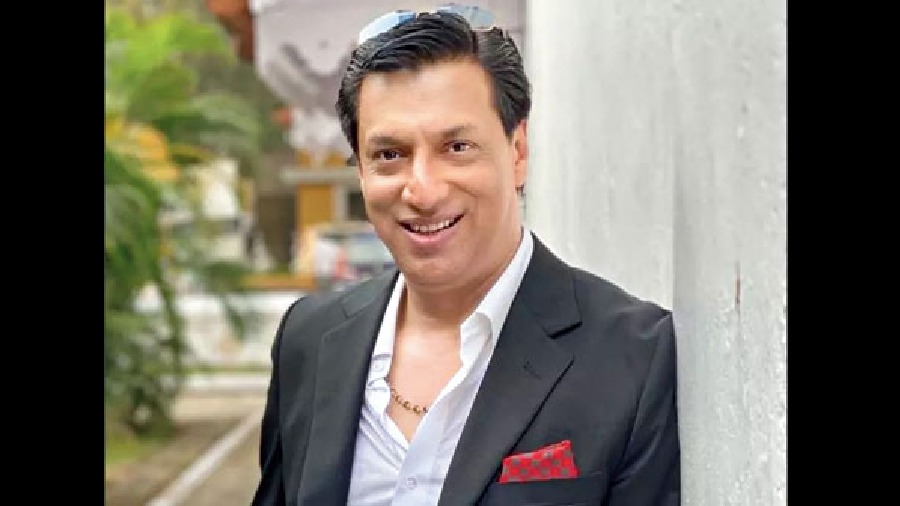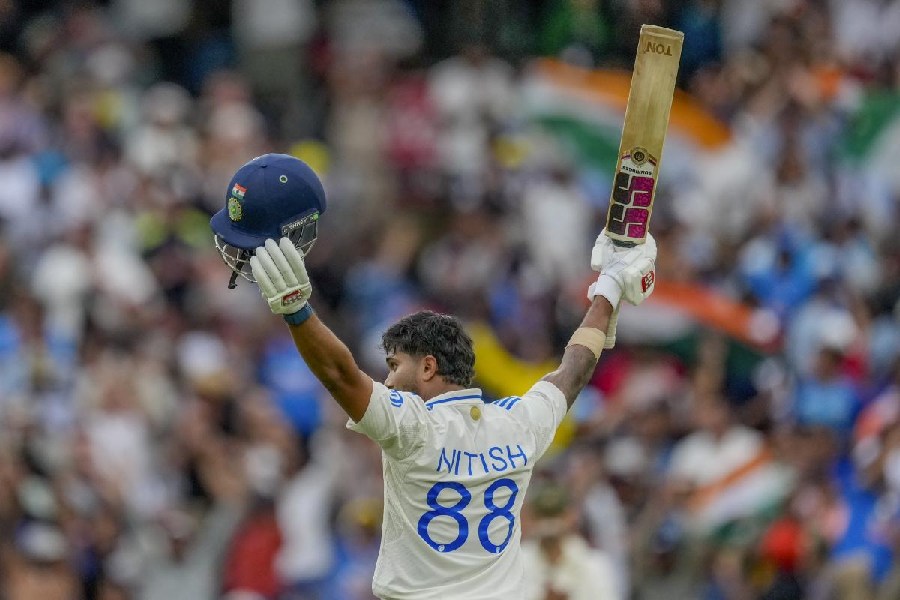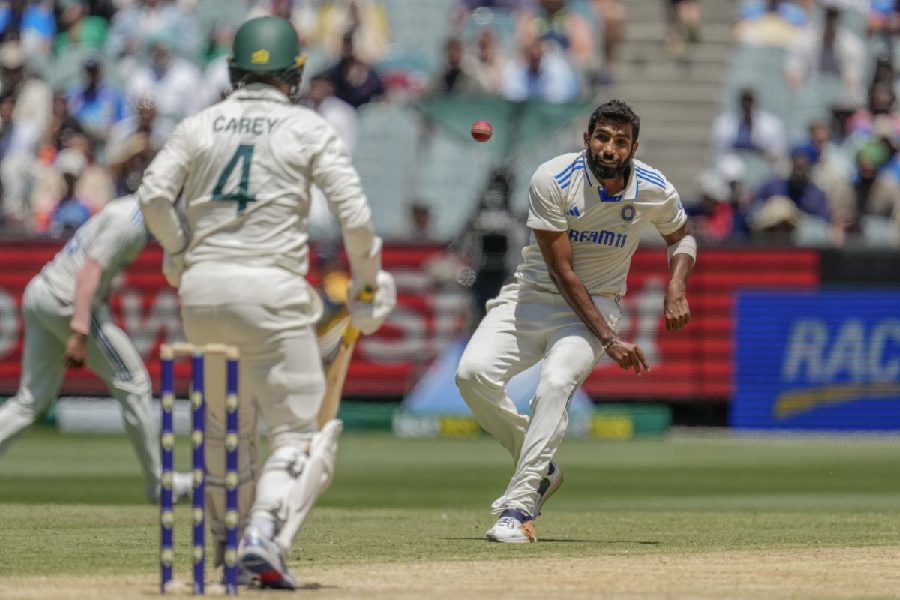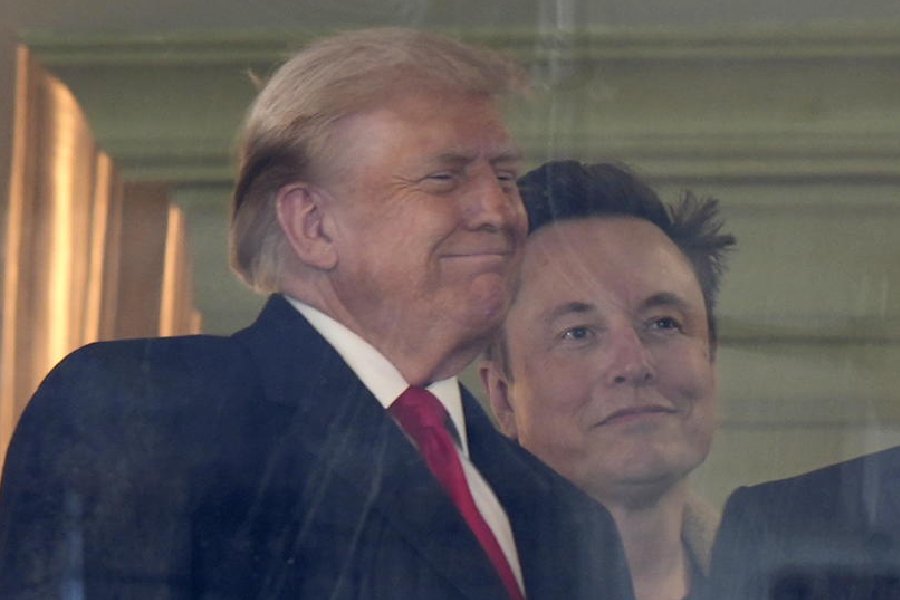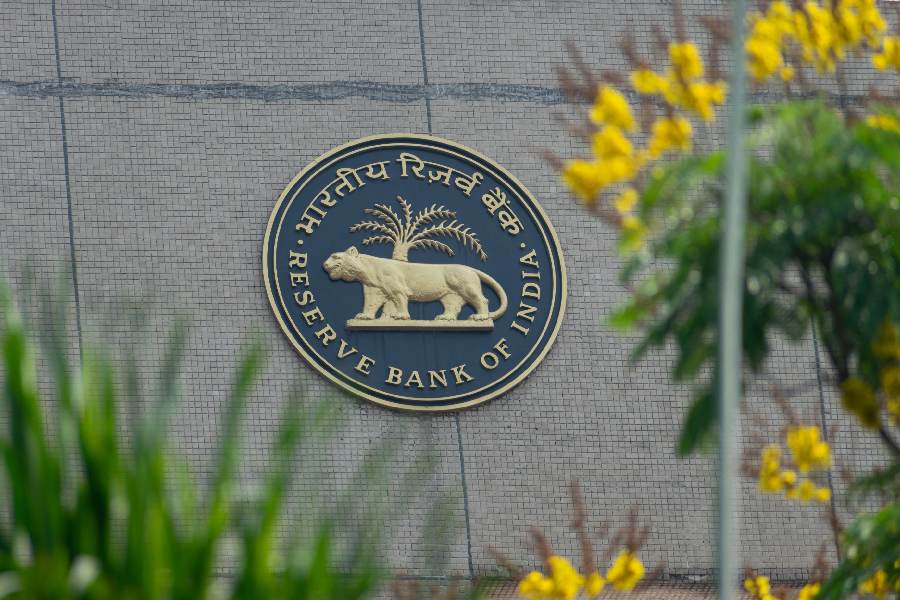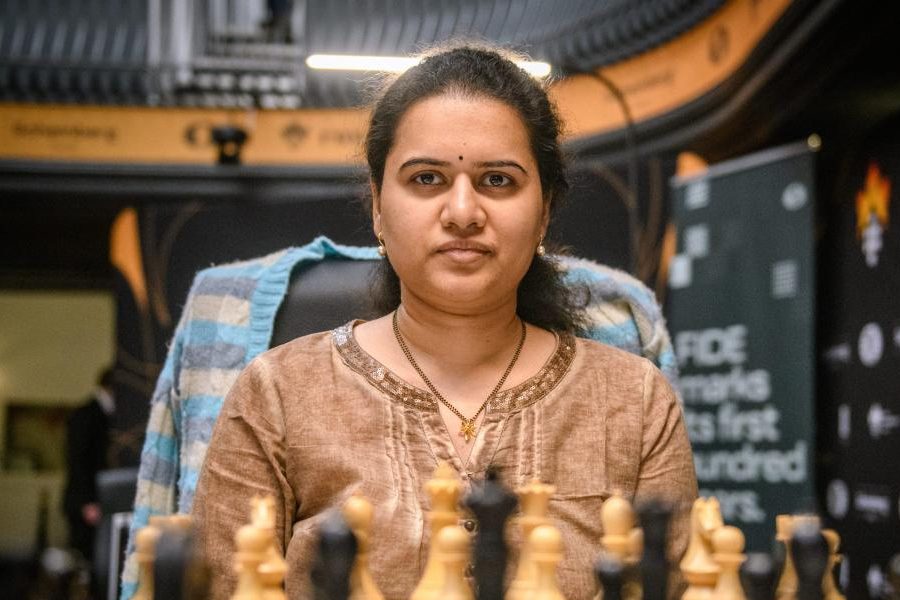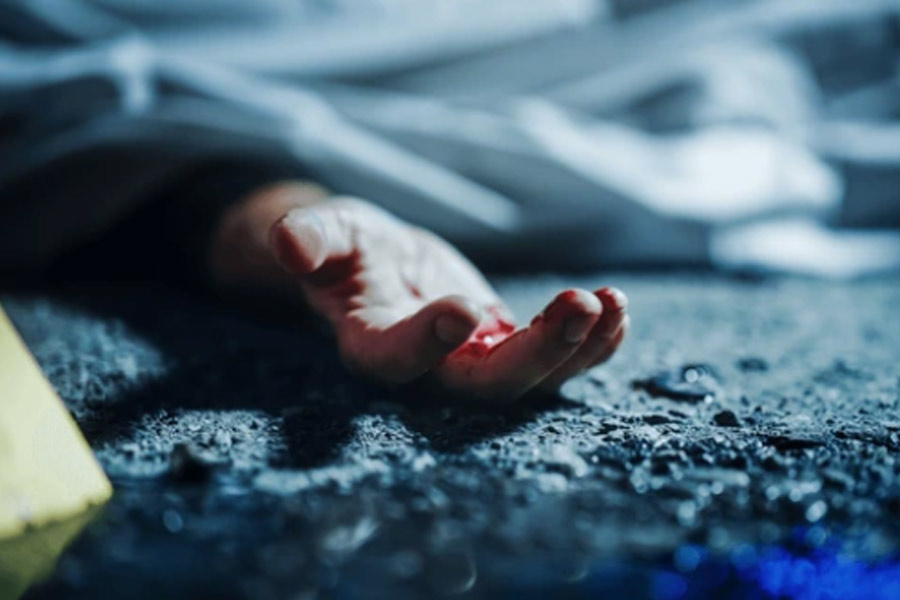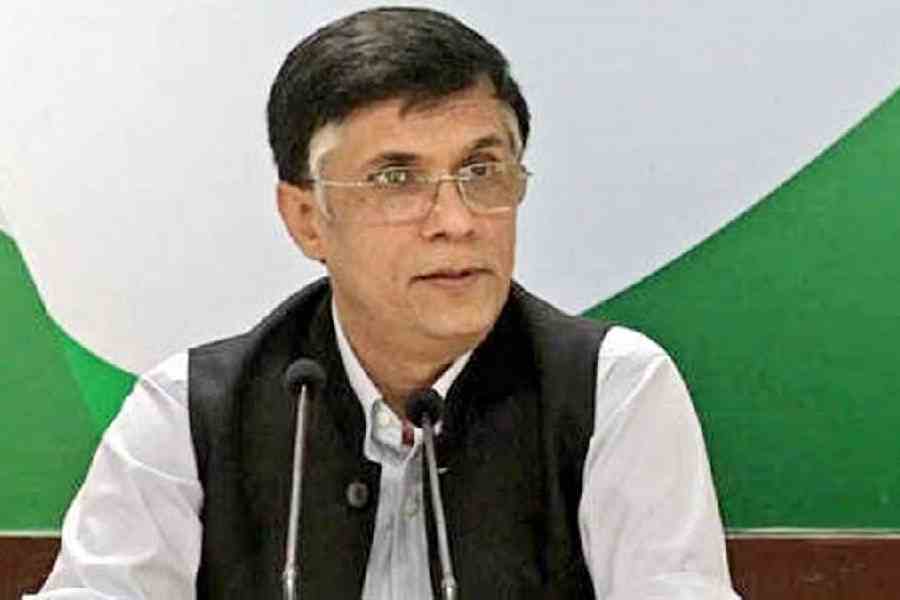Madhur Bhandarkar is his ebullient self as he settles down for a video call on his latest film, India Lockdown, which has just started streaming on Zee5, chronicling a period that tested the human race. On hearing that t2 was speaking from a park with Apur Sansar as theme (in New Town), he couldn’t hide his enthusiasm. Conversation naturally veers towards Avijatrik, the 2021 Bengali film that he co-produced, which is a sequel to Satyajit Ray’s Apu trilogy.
Avijatrik was a welcome gift to Ray fans across the country.
You won’t believe the kind of love I get on social media and on meeting Bengalis and other Ray fans. Now it is streaming on Zee5. When you believe in something and make a film, you go with the flow. The outcome is always the latter part. I am very happy that it even got the National Award. I am a big fan of Ray saab from childhood. When I was a video cassette library boy, I had video cassettes of his works. I also remember watching Shatranj Ke Khilari on Doordarshan. I was fascinated by the way he shot the film and extracted the performances. Ray saab has been an inspiration globally. He got India on the global map.
Are you still looking at regional spaces?
I am a storyteller myself. If I like the subject of a film, in any language, I will surely back it.
The lockdown pushed people to critical crossroads and depiction of such experiences has been your forte.
I know! (Laughs) But I want to make all kinds of films. My last film Babli Bouncer was a family entertainer that became a top watch on OTT. Tamannaah Bhatia got so much applause, playing a small-town girl who becomes a bouncer in a Delhi pub. I would love to make a thriller or an action film or a horror film.
Tell us about India Lockdown.
I wrote two films in 2020 — Babli Bouncer and India Lockdown. They were contrasting films. It was essential to me as a film-maker to make a film on what happened during Covid times and try to capture the catharsis, the emotions of people. I wanted to document the reality of what happened. This film is on the initial 15 -20 days of the lockdown. It starts with the normal lifestyle of people in Mumbai and then what happens. It is a story of emotions, of human spirit, of how people fought that lockdown.
You must have been spoilt for choice when it came to professions that were affected by the lockdown.
Yeah, yeah! There were 10 to 13 stories which we had and it was very difficult to decide. From 13, we came down to eight and then to five. We had to make a compact film and we had to justify every story, na? Ultimately, we were discussing with the writers (Aradhana Sah and Amit Joshi) whether to go for three stories or four. We compromised and decided on four. The characters are connected, so it’s not as if one story is getting over and another is starting. An old man alone in a house wants to visit his daughter in another city. A pilot, played by Aahana Kumra, used to flying 24x7, is suddenly stranded in the house. A migrant couple, Prateik Babbar and Sai Tamhankar (we show) how their lives took a hit. I read an article on how the sex workers survived during the lockdown.
The product they could sell, physical proximity, became taboo.
Absolutely. It was beautiful how they used to collect money — jisko chanda bolte hai — and eat together. Shweta Basu Prasad plays a sex worker.
When you had so many stories to tell was there a temptation to make a web series instead of a film?
You are so right! Lots of people must have been planning (to shoot stories on the lockdown), then it becomes (a race for) who makes the first series. Everyone was working from home. But making a series involves a process — pitching it, writing it, elaborating it... Even if you make eight episodes, it is like making three films. I am sure at that time everyone was thinking of doing something on Covid. I didn’t have so much time. I am a restless film-maker. We started immediately after the first wave, shooting in a bubble.
How was the shooting experience in the middle of Covid?
We shot in 26 days, before the second wave. I got all the actors I wanted. We were doing the (Covid) tests every morning. The shooting happened smoothly.
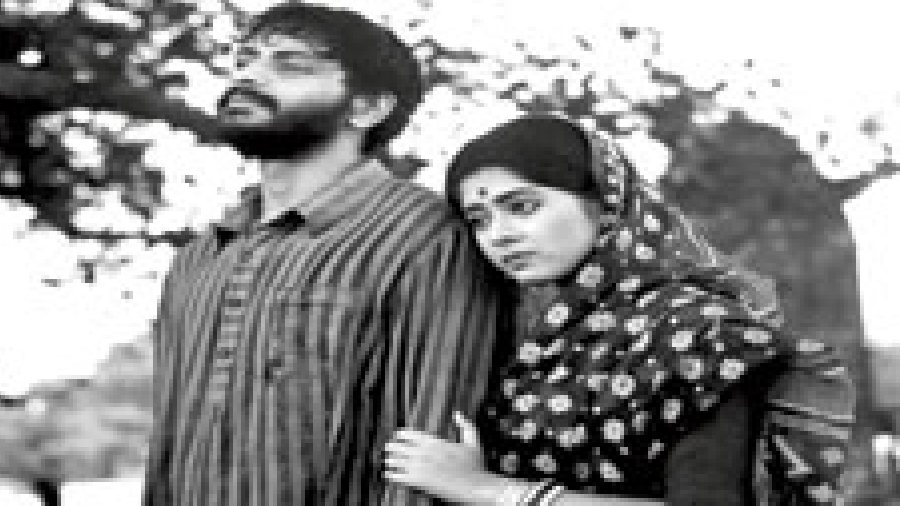
A still from Avijatrik, co-produced by Bhandarkar
Was the migrant labourer story an expansion of the Madhur Bhandarkar world, which is usually glitzy?
(Smiles) I am a film-maker and I show from high-fi society to the downtrodden. I get into all zones — corporate to film to fashion to traffic signal or a bar. Or the political world in the backdrop of the Emergency like in Indu Sarkar. People say Madhur goes into the underbelly of anything. I have told the story of undertrials in Jail also. I want to make an action film which is both real and larger than life. I loved Pushpa. I watched it three times. I loved Kantara, I loved K.G.F also. It is not that because I make realistic cinema I would not appreciate larger-than-life cinema.
Smita Patil used to be the queen of realistic cinema. Is it a coincidence that her son Prateik is playing the migrant worker in your film?
Prateik is a good actor but has not got his due. I wanted to cast him. He came in with blue hair, wearing big glares. My team wondered how he could play a migrant worker. But I am a big admirer of Smita Patil ji. I told Prateik this was a space where his mother has done iconic films like Pet Pyaar aur Paap and Chakra. He got very emotional. I told him to watch his mother in Chakra where she has played a slum dweller, Om Puri in Aakrosh and Balraj Sahni in Do Bigha Zameen as reference points. I encouraged him and he has done a great job. Everybody has applauded his role.
You have given a tag to the film: ‘The times we choose to forget but the stories we need to know.’ But the world seems to be putting the pandemic behind it as if nothing happened.
I have so many friends who say: ‘Yaar, yaad bhi nahin hai’. But once the teaser released, I got so many calls, saying: ‘Madhur, what a reminder it is!’ I am not saying people need to remember. I am just documenting what happened. Today and 20 years later, even the next generation will connect with the film. Children who are two or three years old now will know from the film what Covid was.
One would have expected more cinematic interpretations of the lockdown from the industry. Are you surprised that there is no competition?
Mine is the first movie to be made on Covid. Forget India, I have not heard globally anyone making a film on Covid, may be a documentary here and there.
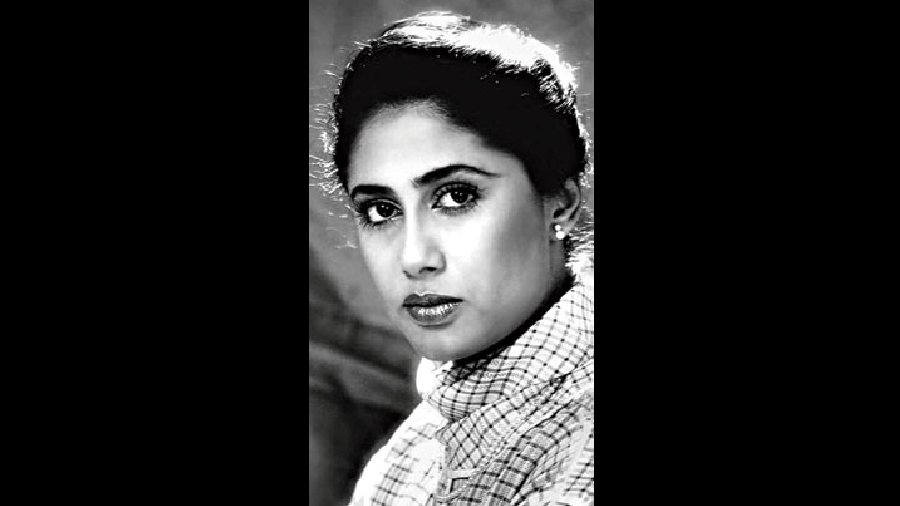
Smita Patil
You were recently in Rome and posted a video of a taxi driver singing Mera joota hai Japani on Instagram.
Yes. He must have realised I am an Indian and started humming the Raj Kapoor song. Such things happen across the globe. I have been to Russia many times. Russian people have connected to Raj Kapoor and Mithun Chakraborty across generations. They know Awaara hoon, Mera joota hai Japani and Jimmy Jimmy aaja aaja, not just in the big cities but in small towns also.
Not many people know that you appeared in front of the camera in Rangeela.I am not equipped to be an actor. I was associate director on the film. The actor who was supposed to do the role was not there and (director) Ramgopal Varmaji asked me to do that role. That’s why I did it.
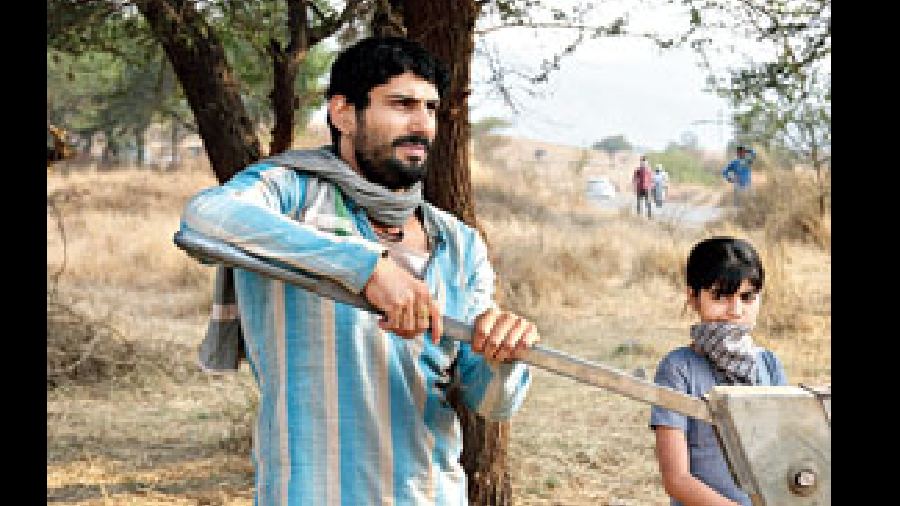
Prateik Babbar as a migrant worker in India Lockdown

